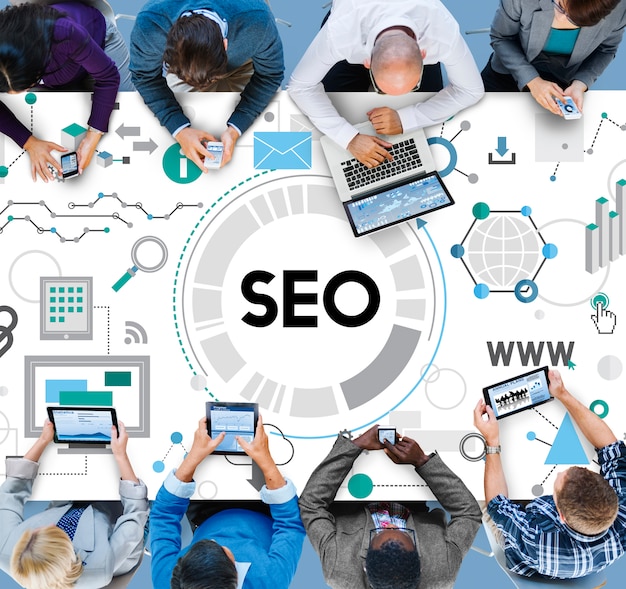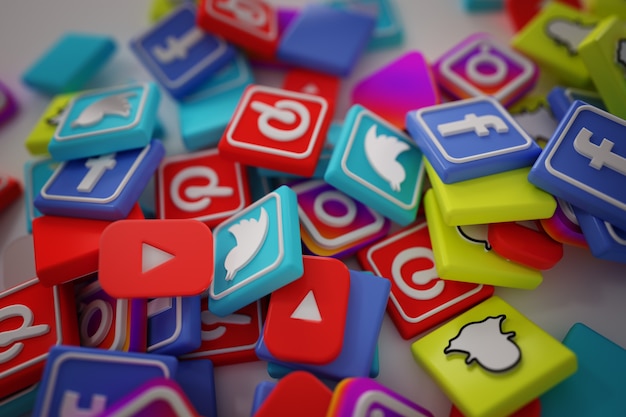What is Digital Marketing and Digital Marketing Types
What is Digital Marketing?
Digital
marketing refers to any online marketing efforts or possessions. Email
marketing, pay-per-click advertising, social media marketing and even blogging
are all great examples of digital marketing—they help introduce people to your
company and convince them to buy.
Here
are some of the most common digital marketing possessions and strategies
businesses use to reach people online:
Digital Marketing Assets
Almost
anything can be a digital marketing asset. It merely needs to be marketing the tool you use online. That being said, many people don’t understand how many
digital marketing possessions they have at their disposal. Here are just a few
examples:
As you
can imagine, this list just scratches the surface. Most digital marketing
possessions will fall into one of these categories, but clever marketers are
continuously coming up with new ways to reach customers online, so the list
keeps growing!
Types of Digital Marketing
The
list of digital marketing strategies is too constantly progressing, but here
are some of the strategies most businesses are using:
Pay-Per-Click Advertising
Pay-per-click
(PPC) advertising is essentially a broad term that asylums any type of digital
marketing where you pay for every user who clicks on an ad. For example, Google
AdWords is a form of PPC publicity called “paid search advertising” (which
we’ll go over in a second). Facebook Ads are an alternative form of PPC
advertising called “paid social media advertising” (again, we’ll get into that
shortly).
Paid Search Advertising
Google,
Bing and Yahoo completely allow you to run text ads on their Search Engine
Results Pages (SERPs). Paid search advertising is one of the best ways to
target potential customers who are dynamically searching for a product or
service like yours.
Search Engine Optimization (SEO)
If you
don’t want to pay to show up in the SERPs, you can similarly use search engine
optimization (SEO) to try and rank pages or blog posts on your site
organically. You don’t have to pay directly for every click, but getting a page
to rank generally takes quite a bit of time and effort.
Paid Social Media Advertising
Most
social media stages like Facebook, Instagram, Twitter, LinkedIn, Pinterest and
Snapchat will allow you to run ads on their site. Paid social media advertising
is great for building awareness with audiences that perchance not be aware that
your business, product or service exists.
Social Media Marketing
Like
SEO, social media marketing is the free, biological way to use social media
platforms like Facebook or Twitter to market your business. And, just like SEO,
gradually marketing your business on social media takes a lot more time and effort, but in the long run, it can deliver much cheaper results.
Conversion Rate Optimization (CRO)
Conversion
rate optimization (CRO) is the skill and science of improving your online user
experience. Most of the time, businesses use CRO to get more conversions
(leads, chats, calls, sales, etc) out of their existing website traffic.
Content Marketing
Content
marketing is an additional fairly broad digital marketing term. Content marketing
shields any digital marketing effort that uses content possessions (blog posts,
infographics, eBooks, videos, etc) to build brand awareness or drive clicks,
leads or sales.
Native Advertising
Ever
get to the bottom of an article and see a list of recommended articles? That’s
native advertising. Most instinctive advertising falls under content marketing
because it uses content to attract clicks (“you’ll never believe what happens
next!”). Often, native advertising can be a bit hard to spot, since it is
usually mixed in with non-paid content recommendations…but that’s kind of the
opinion.
Email Marketing
Email
marketing is the oldest form of online marketing and it’s still going strong.
Most digital marketers use email marketing to advertise superior deals,
highlight content (often as part of content marketing) or promote an occasion.
Affiliate Marketing
Affiliate
marketing is fundamentally paying someone else (a person or a business) to
promote your products and services on their website.
As you
can see from the list above, there are a lot of different ways to market your
business online, which is why many businesses either hire an intervention to manage
their digital marketing efforts or pay for an in-house marketing team and
marketing automation software to cover their marketing needs (for an in-depth
comparison of these options, check out this article).
Does Digital Marketing Work?
Digital
marketing is a great option for any business. At Disruptive, we’ve used digital
marketing to help all kinds of businesses grow—from mom-and-pop shops to
internationally recognized universities and beyond. That’s the beauty of
advertising online. If you know who you desire to target, you can use digital
marketing to target anyone, anywhere.
However,
that being said, certain types of businesses will benefit more from certain
types of digital advertising. As a quick overview, let’s take a look at which
strategies tend to work best for business-to-consumer (B2C) companies and
business-to-business (B2B) companies:
B2C Companies
Usually
speaking, B2C companies have much lower price ideas than their B2B
counterparts. After all, it can be a little hard to sell a $150,000 drill bit
(believe me, they exist) to a harried mom. But a $10 pair of kids pants? That’s
a fairly straightforward sell.
The
good news is because B2C companies aren’t trying to sell incredibly expensive
products or services, they don’t need big sales teams or complicated marketing
Funnels. All they have to do is get their products or services in front of the
right audience with the right messaging and the rest should take care of
itself.
As a result, the major goal of most B2C companies is to get people into and through
their marketing funnel. For example, if you can get that harried mom onto your
kids clothing website and offer her an exciting deal, there’s a good chance
that she’ll buy today. You don’t need to build a load of brand awareness or expectation
before you can close a sale.
With
that in mind, B2C companies frequently see great results from higher-funnel
marketing channels like social media marketing or paid social advertising.
These channels do a great job of getting your business in front of potential
customers who might not otherwise know that you exist.
Now,
supplementing with other digital marketing strategies like paid search or SEO
is always a good idea, but if you have to pick one channel to start with, paid
social advertising or social media marketing are countless options for B2C.
B2B Companies
In contrast, paid search is the greatest option for B2B companies. Most B2B
companies have very specific niche viewers that can be hard to target using
social media. However, if you sell $150,000 drill bits and someone searches for
“diamond-tipped oil drilling bit manufacturer”, you want to be the first result
they see. Yes, you might pay more for your click than you would with paid
social advertising, but with a $150,000 price tag, its money well spent.
In
addition, most B2B companies have a much longer and more involved sales cycle
than B2C companies. If you’re selling a $150,000 drill bit, most people
probably don’t come to your site, give you a call and say “I want one.” As a
result, longer-term strategies like content marketing or email marketing are
often necessary to close an agreement.
Of
course, the right blend of digital marketing tactics will vary from
industry-to-industry and business-to-business, but simply comparing B2C to B2B
should help give you a sense for how different strategies can be better for
certain businesses. Not every strategy is right for every business, but with a
little trial and error, you should be able to identify the most profitable
approach for your company.




Comments
Post a Comment